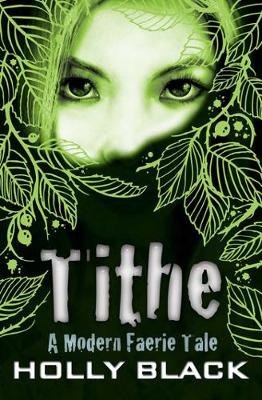You join a continuum, an ever-present. You see through your eyes, and the eyes of others. Difference dissolves. But you stay you.
As I looked up from my veranda, my new house, following Bruno’s star instructions, I felt distances dissolve between him and me.
I had a sensation of floating, not unlike floating on the salty swells, as if I were borne aloft, as if I were held by this lake of stars.
But then I sensed odd movement on the edges of the sky, the peripheral regions of my vision.
Was I having a vascular event? I had mostly stopped having them when I gave up alcohol.
The movement was real. A star was pawing its way among the other stars, moving, but too slow to be a shooting star.
As I lay there, I saw another of these little stars crawling along, and another, and then another.
They were satellites. The sky was full of them.
That I had relied on satellite technology did nothing to mute my sense of offense. The sky was polluted with these things. The whole glittering dark dome above was alive with them, moving here and there. They were little electric lice. Lice crawling over the cosmos like it was a warm head.
These lice were yet another sign of Bruno, a child running free in the ravages of war. That was Little Bruno. And then Big Bruno had lived to tell.
I never even got to meet him. Unless that had been him at the lake in Vantôme, and I had missed my chance.
You are not Bruno?
I am not.
I went in and lay down in my new house, empty except for a bed I’d had delivered that morning.
There was no ambient light up here. The room was dark.
I looked into the dark. I began to see things. They were from inside my mind.
What I saw was those babies, like the ones in the Dubois house, moseying into view. Les Babies.
We are all sieves, Bruno had said. We catch and hold on to things along the way. We say hello to these things, these distractions, and we let them float past.
The fortnight Bruno had experimented with darkness, he had told the Moulinards that in the heart of blackest blackness, he had experienced a visual hallucination of opalescent lava in a magnificent volcano-spill. The volcano, he said, had morphed into a magical bread oven that spit golden loaves, loaves that rolled from the oven as if on a conveyor. These scenes, the lava and the bread oven and the gold loaves, had then morphed into little cartoon images that were familiar to him: they were the debased advertising logo of a brand of factory cookies, mass-produced, something from his own childhood.
The experience was a reminder, he said, that when you attempt to escape the world, to leave it behind, you bring things with you.
Understand that you can never leave purely, he said. We want to escape what ails us, into some idyll, but know that when you go, you travel with cargo, stowaways, souvenirs from the old world. Don’t be afraid of them.
Instead, say hello. Be friendly. Be patient. These things you’ve brought along will pass. Say hello and watch them go.
I lay and watched Les Babies. Naked and classical. Babies in chef’s hats. Babies in aprons.
They floated by and faded out.
I said goodbye to them, the only babies I would ever have, and that I hoped they’d be back.
As autumn progressed, the Big Dipper was sinking. Each evening, it was tipped a little lower on the horizon, the tinker angling his cart, a sky tinker pushing his sky cart on a frictionless journey, with no need of wheels.
On a night with no moon, I drew the line from the two front stars on the tinker’s cart upward to Polaris.
Polaris, Bruno had said, connects the Big and the Little Dipper. It forms the end of the handle of the Little Dipper. This is the Difficult Dipper, he had said, the one you will not see unless the sky is suitably dark.
There it was, a flipped cart, upside down, standing on its handle.
There they were. Both dippers, and their linking star, their guiding star, and Bruno’s, and mine.
Nights, I lay on my veranda, my star deck, and looked up. Days, I looked at the sea. Or I read. Or I walked.
My sloe-eyed friend came to visit sometimes. She spoke to me in Catalan, which I wanted to learn. I spoke to her in French.
But mostly I was alone.
Come December, a new work inquiry arrived. Someone in the UK.
I had been turning down all offers of work, and so I had mostly stopped getting them. I responded to this one as I had to all the others.
I have retired to Priest Valley, I wrote.
Priest Valley? Where is that? they asked.
Exactly, I replied.
ACKNOWLEDGMENTS
Thank you to Jason Smith for his encouragement and wisdom, and his influence on tone, theme, and world. To Nan Graham for the grandness of her vision and her meticulous and spirited attention to this book. To Susan Golomb, as always, for her amazing and tireless support. To early readers Francisco Goldman, Ben Lerner, Marisa Silver, and Dana Spiotta. To Remy Smith Kushner for his knowledge of the caves of the Guyenne. Tovey Halleck for his skill and expertise at catching fish with bare hands. To Katherine Monaghan, Sabrina Pyun, Stuart Smith, Brianna Yamashita, Lauren Dooley, Kassandra Rhoads, Hannah Mouschabeck, Katie Rizzo, Jaya Miceli, Wendy Sheanin, Jonathan Karp, and everyone at Scribner and Simon & Schuster. To Maja Nikolic and Sasha Landauer at Writers House. Finally, my heartfelt thanks to the Civitella Ranieri Foundation, the Maison Dora Maar, the Ucross Foundation, and MacDowell.





















